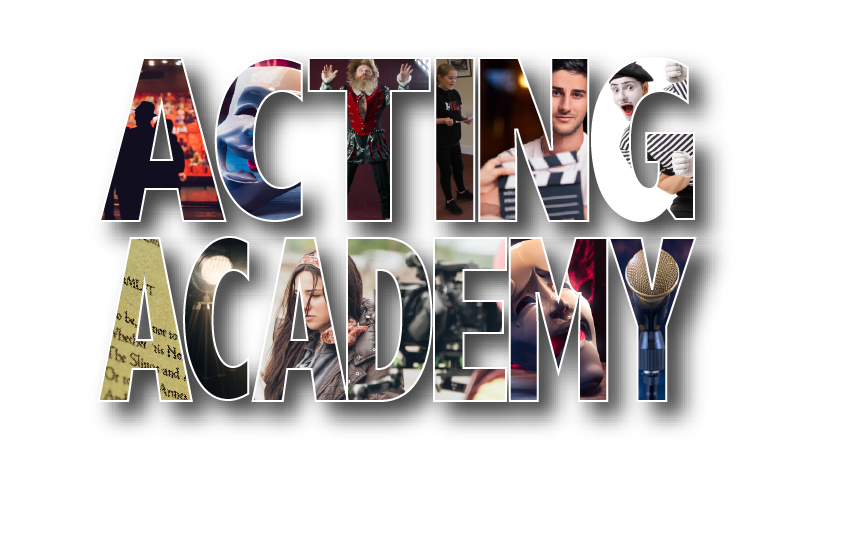
Train to be a professional actor Start a free trial today!
The Role of an Agent: What They Do and Why You Need One
Written by Mark Pegg on Oct. 8th 2024
In today’s post, we’ll explore practical steps you can take to increase your chances of success as a professional actor. From reaching out to agents to preparing for auditions and self-tapes, this guide will walk you through the key advice from industry insiders about how to get noticed and move your career forward.
At its core, an agent helps actors secure work by finding opportunities, negotiating contracts, and providing guidance. But when you're just starting out, an agent often does more than that. They can act as a mentor, offering fresh eyes and insight into the early stages of your career.
An agent is there to help you navigate the often challenging entertainment industry, whether it's offering advice on what roles to audition for or how to build your portfolio.
Approaching Agents: Make it Personal
When reaching out to agents, your approach is key. Here are some tips to make sure your efforts don’t go unnoticed:
Do Your Research: Know who you're contacting. Avoid generic greetings like "Dear Sir/Madam." Tailor your message to the specific agency, and even better, to a particular agent. Look for agencies that represent actors similar to you or ones that don't have someone like you on their roster.
Short and Sweet: Keep your email concise and professional. Attach a link to your CV, headshots, and a showreel if you're focusing on TV or film work. If you're primarily a stage actor, include relevant performance material, even though it’s more challenging to film.
Showreel Must-Haves: A strong showreel can set you apart. Make sure it showcases your range, whether it’s different accents or character types. If you’ve listed skills like accents or specific abilities, demonstrate them in your reel—don’t just mention them.
Self-Taping: Getting It Right
With the rise of self-tape auditions, it’s easier than ever to send in your work from home. However, there’s no excuse for a poorly done self-tape in this era. Here’s what to remember:
Lighting and Framing: Make sure your video is well-lit and properly framed. Avoid distractions in the background and ensure your face is clearly visible.
Clear Audio: Bad sound quality can ruin a good performance. Ensure that your voice is clear and easy to hear.
By putting care into your self-tape, you show professionalism—something casting agents take note of. It’s often the little details that set you apart from the competition.
Choosing the Right Roles: Be Realistic
One of the most important pieces of advice is to know your type and the roles that suit you. This means being honest with yourself about the kinds of roles you're most likely to be cast in. Whether you’re a young professional type, a villain, or the comedic sidekick, focusing on roles that align with your look and skills will increase your chances of success.
It's a waste of time to audition for roles that don't fit your age range, appearance, or general type. By focusing on what you’re right for, you’ll save energy and put yourself in the best possible position to land roles.
Audition Tips: First Impressions Count
The moment you step into an audition room, you're being evaluated—not just on your acting ability, but on your overall professionalism. Here’s how to make a great impression:
Be Personable: Greet the casting team with confidence and make eye contact. A warm introduction can go a long way.
Know Your Lines: Even if it’s just a couple of lines, make sure you’ve memorized them. Don’t rely on looking at the script—casting agents want to see confidence in your delivery.
Professionalism Matters: Every audition is an opportunity. Even if you don’t land the role, you’re auditioning for all future projects that the casting director may be involved with. Leave a lasting positive impression, and they may keep you in mind for future roles.
Patience is Key: Building a Long-Term Career
It’s crucial to remember that building a career as an actor takes time. Once you’ve secured an agent, it’s unlikely that you’ll land a major role overnight. Most actors start by taking on smaller gigs—short films, commercials, or even walk-on roles. These jobs help you build your portfolio and gain the experience needed for larger roles down the line.
Keep the lines of communication open with your agent. Honesty is key; whether it’s discussing headshots that may not be working or getting feedback from auditions, you and your agent are a team. The relationship should be built on trust and transparency.
Controlling What You Can
The acting industry is unpredictable, and there are many factors outside of your control—whether or not you fit a role’s look, the production’s needs, or timing. But the one thing you can control is your professionalism.
Even small jobs, like a low-budget commercial or minor role in a short film, are opportunities to show your dedication. You never know when that casting director will be working on a big project and remember your professionalism.
In conclusion, breaking into the acting industry requires perseverance, careful planning, and smart career choices. By making a professional first impression, knowing your strengths, and maintaining a patient, focused approach, you’ll maximize your chances of success as a professional actor.
Whether you're just starting out or looking to take your career to the next level, the advice shared here can help guide your path. Good luck!
About Acting Academy
Acting Academy offers professional online acting courses, combining flexible weekly lessons, tutorials, and practical workshops. Tailored for all actors, it includes a graduation showcase for agents and casting directors, plus LAMDA exam preparation for those seeking recognized qualifications. Membership options start from £18.99 per month with a 14-day free trial, and premium members enjoy perks like free tutorials. It's designed to help students learn at their own pace while providing access to industry opportunities.
About Author: Mark Pegg
Mark Pegg trained at the Academy of Live and Recorded Art and became a popular face on British television screens in the role of Alfie Kane in EASTENDERS and Tony Wier in the BAFTA winning and critically acclaimed OUR FRIENDS IN THE NORTH.
Mark’s film producing credits include HEROES & VILLAINS released in the UK by Lionsgate and starring James Corden and Jenny Agutter, the award winning documentary TOVARISCH: I AM NOT DEAD and most recently DREAM ON starring Richard Coyle, Sienna Guillory and Sam Torrence. Forthcoming projects on the slate include RED CARD a thriller scripted by veteran writer Don Shaw set in the murky world of professional football.

In The News
About Us
In The News
- Nicole Kidman - How to get that life
- Student Reviews - What our people think
- And So Much More...

